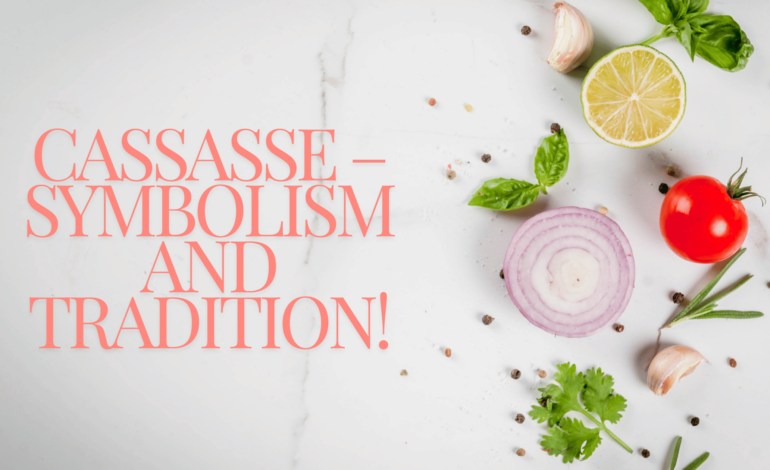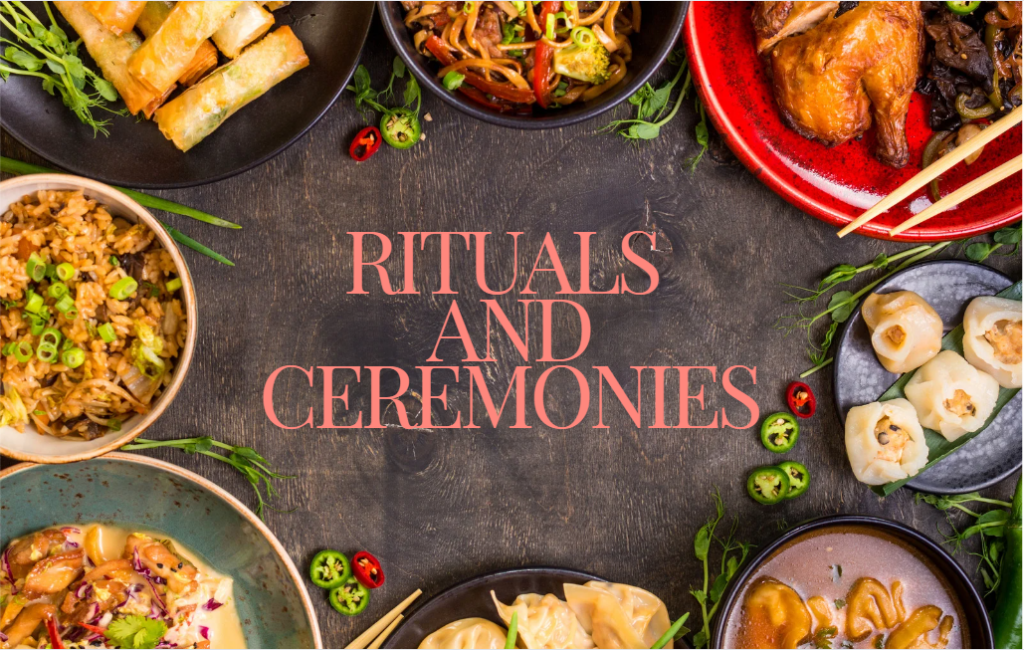
Cassasse – Symbolism And Tradition!
In gastronomy, culinary treasures exist that transcend mere sustenance, captivating the senses and weaving stories of tradition and taste. One such gem, often shrouded in mystique, is Cassasse.
Cassasse traces its origins to the vibrant tapestry of Caribbean cuisine, with roots deep within various societies’ cultural narratives.
Join us on a journey as we unravel the enigmatic allure of Cassasse, delving into its origins, cultural significance, and modern-day relevance.
Discussing The Term Cassasse – A Tapestry Of Tradition!
The term “Cassasse” weaves a rich tapestry of tradition, inviting exploration into the cultural landscapes of the Caribbean and beyond. Rooted in centuries-old culinary practices, Cassasse embodies the ingenuity and resourcefulness of generations past, evolving from a humble peasant meal into a cherished tradition celebrated during festive occasions and everyday gatherings.
Its utterance evokes nostalgia and reverence, serving as a gateway to a world where flavours mingle with stories and traditional dances with innovation. At the heart of Cassasse lies a deeper significance beyond its culinary delights.
It symbolises resilience and community, uniting people across diverse backgrounds in shared experiences of joy and celebration. From the preparation, and rituals passed down through generations to the communal sharing of this beloved dish.
Cassasse encapsulates the essence of tradition, weaving connections that transcend time and place. In an ever-changing world, the term Cassasse remains a steadfast anchor, grounding us in the rich tapestry of cultural heritage and culinary craftsmanship.
Read Also: Esfeet: The Ultimate Guide To Foot Health And Comfort in 2024!
Rituals And Ceremonies – Ceremonies Surroundings!

- Cassasse often takes centre stage at weddings in Haiti, symbolizing abundance, unity, and shared joy among the newlyweds and their guests.
- During religious ceremonies and festivals, Cassasse holds a sacred significance, representing blessings, gratitude, and spiritual renewal within the community.
- Families gather around the preparation of Cassasse, transforming it into a communal event filled with laughter, storytelling, and the passing down of cherished traditions from one generation to the next.
- The act of sharing Cassasse during ceremonies fosters a sense of togetherness and strengthens bonds among family members and friends, creating lasting memories and connections.
- Cassasse is often offered as a gesture of hospitality and warmth to guests, embodying the host’s generosity and goodwill in welcoming visitors into their home and community.
Read Also: Naomi Burton-Crews: Daughter of Hollywood Royalty
Cassasse In Folklore And Literature – Uncovering Its Rich Significance!
| Symbolism of Resilience: In many folk tales, Cassasse symbolizes resilience and endurance in the face of adversity. Its creation often mirrors the resourcefulness of characters overcoming challenges, transforming humble ingredients into a delicious dish that sustains and uplifts spirits. |
| Celebratory Rituals: Within folklore, Cassasse frequently appears in celebratory rituals, marking significant milestones such as weddings, births, and harvest festivals. These narratives depict Cassasse as a symbol of abundance and communal unity, where its preparation and consumption serve to strengthen social bonds and foster a sense of belonging. |
| Narratives of Tradition: Literature often weaves narratives around the tradition of Cassasse, portraying it as a cherished cultural practice passed down through generations. These stories explore the intricacies of family recipes, the rituals of preparation, and the transmission of culinary heritage from elders to younger generations. |
| Metaphors for Transformation: Cassasse is sometimes used as a metaphor for transformation and personal growth in literary works. Its journey from raw ingredients to a flavorful dish mirrors the protagonist’s evolution, highlighting themes of adaptation, resilience, and the transformative power of tradition. |
| Cultural Identity: Within folklore and literature, Cassasse serves as a marker of cultural identity, representing the unique heritage and traditions of the communities that cherish it. Its presence in stories often reflects the cultural landscapes of the Caribbean and other regions where it holds significance. |
Health And Wellness!
- Cassasse is often regarded as a nutritious dish, offering a balance of essential nutrients that contribute to overall health and wellness.
- With its main ingredient, cassava, being a good source of carbohydrates, Cassasse provides sustained energy, making it a satisfying option for meals.
- Cassava also contains vitamins and minerals such as vitamin C, thiamine, and manganese, which support various bodily functions including immune health and metabolism.
- The inclusion of aromatic herbs and spices in Cassasse adds not only flavor but also potential health benefits, as many herbs are rich in antioxidants and anti-inflammatory properties.
- Traditional Cassasse recipes often incorporate fresh ingredients like onions, garlic, and herbs, which are known for their potential immune-boosting and heart-healthy properties.
- Cassasse can be a versatile dish suitable for various dietary preferences, including vegetarian and gluten-free diets, making it accessible to a wide range of individuals seeking wholesome meal options.
- Enjoying Cassasse as part of a balanced diet can contribute to overall well-being, providing both nourishment and enjoyment for the body and soul.
Adaptations And Innovations – Add A New Twist To The Classic Dish!
In the ever-evolving landscape of culinary arts, adaptations and innovations breathe new life into traditional dishes, and Cassasse is no exception. Rooted in cultural heritage yet open to reinterpretation, Cassasse invites chefs and home cooks alike to experiment, explore, and reimagine its flavours and presentation.
One avenue of innovation lies in ingredient substitutions and additions, where chefs infuse Cassasse with modern twists by incorporating unconventional elements. From exotic spices to plant-based proteins, these adaptations cater to evolving tastes and dietary preferences, ensuring Cassasse remains relevant in today’s diverse culinary scene.
Frequently Asked Questions:
Is Cassasse gluten-free?
Yes, Cassasse is naturally gluten-free since it is made from cassava, a root vegetable that does not have gluten.
Can Cassasse be enjoyed outside of Haiti?
While Cassasse has its origins in Haiti, its popularity has spread beyond its borders, gaining recognition on the international culinary scene.
On what occasions is Cassasse typically served?
Cassasse is often served during special occasions such as weddings, birthdays, and religious ceremonies in Haitian culture.
What does Cassasse taste like?
Cassasse has a distinctive flavour profile characterized by the subtle, slightly nutty taste of cassava combined with savoury notes from garlic, onions, and herbs.
Conclusion:
Cassasse, with its rich symbolism, cultural significance, and adaptability, transcends culinary boundaries, weaving together tradition, innovation, and taste.



